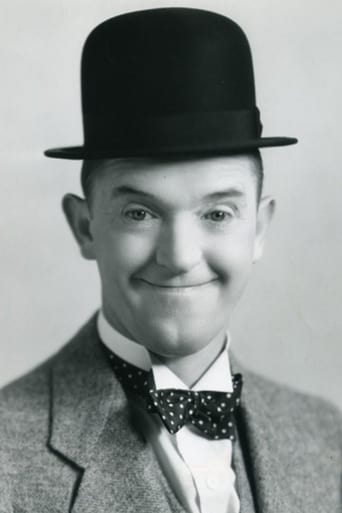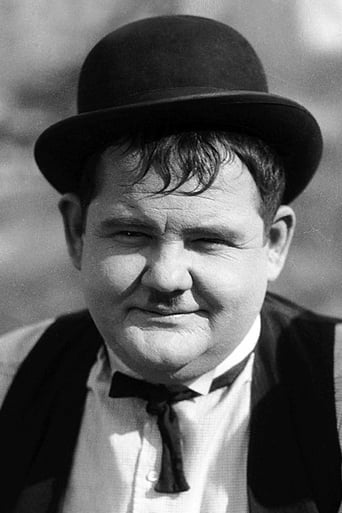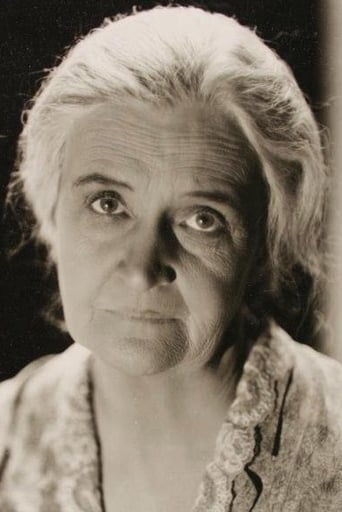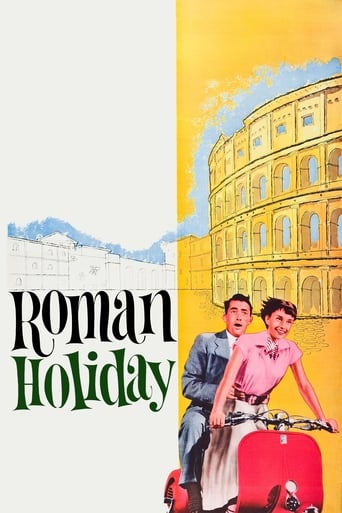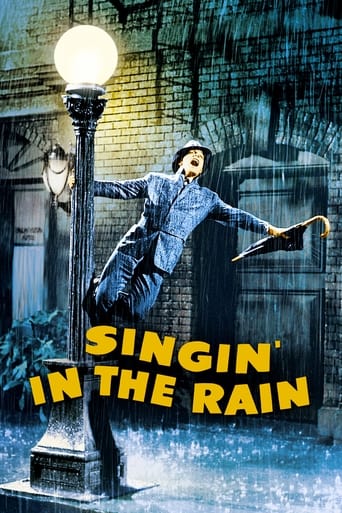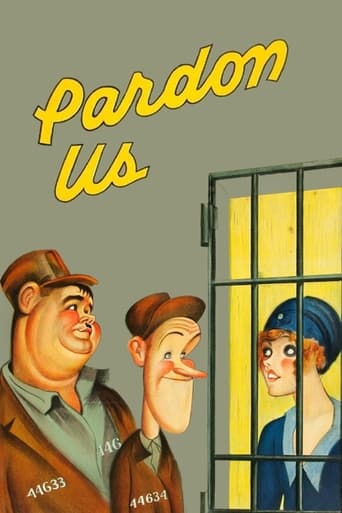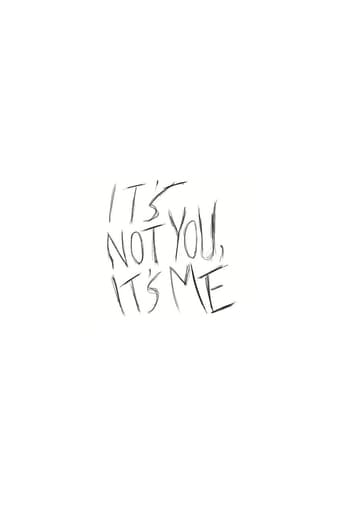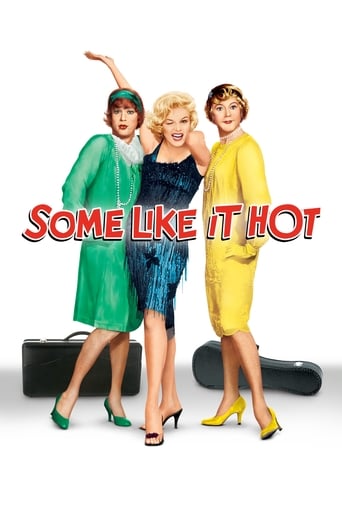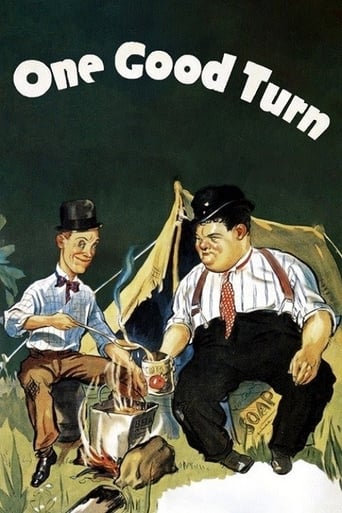
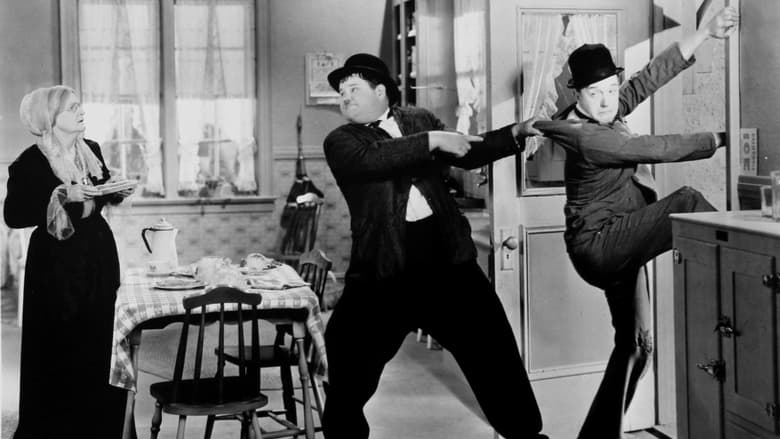
One Good Turn (1931)
Down and out Stan and Ollie beg for food from a friendly old lady who provides them with sandwiches. While eating, they overhear the lady's landlord tell her he's going to throw her out because she can't pay her mortgage. They don't realize that the old lady is really rehearsing for a play. Stan and Ollie decide to help the old lady by selling their car. During the auction a drunk puts a wallet in Stan's pocket. Ollie accuses Stan of robbing the old lady, but when the truth is revealed Stan takes revenge on Ollie.
Watch Trailer
Cast


Similar titles
Reviews
Laurel and Hardy strive to help little old lady Mary Carr whom they believe is about to be put out on the street. Little do they realize that the jokes on them. Starting off with them camping in the woods, for them it looks like everything that can go wrong will go wrong. But it was a nice though anyway. James Finlayson plays an important part, but this time he's not their foil, and they don't even share scenes with him. Carr is a sweet delight, obviously being an expert in these type of roles. In one of the few times that Laurel is allowed to show some temper, he actually gets to give Oliver a taste of his own medicine, that is until the final shot.
Stan Laurel and Oliver Hardy are the most famous comedy duo in history, and deservedly so, so I am happy to see any of their films. Basicaly Stan and Ollie are living rough, with only some clothes and their car, and after managing to burn down their tent they see no choice but to go begging for food somewhere. They find the house of Old Lady (Mary Carr), and she agrees to make some sandwiches and coffee for them, while they do a little wood chopping, which of course doesn't last long. While tucking into their food, they overhear the Old Woman begging "villainous landlord" (James Finlayson) not to evict her when she can't pay him the $100 she owes. Stan and Ollie decide to try and sell their car and give the Old Woman the money to pay the villain off, and a paying drunk man accidentally puts his wallet in Stan's pocket, spurring Ollie to think he stole it from the Old Woman. So he forces Stan to go back (their car by the way collapses) to prove his guilt, but they both didn't realise she was rehearsing with the Community Player for a play, so Stan is very mad, and the film ends with a last squabble. Filled with good slapstick and all classic comedy you want from a black and white film, it is an enjoyable film. Stan Laurel and Oliver Hardy were number 7 on The Comedians' Comedian. Worth watching!
I've always loved Laurel & Hardy, no matter which of their films I'm watching. Their best movies are delightful, and even in their lesser efforts I find that their impeccable teamwork and special idiosyncrasies usually carry the day. Over and above the comedy it's their relationship I savor, and for that reason I've always found One Good Turn a rather disturbing short. If you care about Stan and Ollie as buddies this one can even be a somewhat traumatic experience, for in this film the pressure of unemployment and homelessness put a serious strain their friendship, causing not just the usual knockabout quarreling, mind you, but a genuine crisis that leads to a misunderstanding, hurt feelings and, worst of all, a rift in their partnership that is left unresolved at the end. When I first saw this short as a kid it left me upset, and watching it again today I remember why.Normally at the beginning of an L&H comedy we find a fairly stable situation: the boys are workers of some sort, or suburban husbands who've assigned themselves a home fix-it project. Gradually, of course, and despite their best efforts, things unravel. But when One Good Turn opens their situation has all but unraveled already. Stan and Ollie are homeless and broke, though they still own a car, and it appears that the car and a pup tent are their only shelter. They're camping in a field, and right off the bat Ollie is irritated with Stan, who is cooking their soup and hanging up their laundry. Within minutes Stan has managed to ruin the soup, wreck their clothes and destroy the pup tent, so the guys are reduced to going door to door, begging for a handout. At the first home they visit a nice old lady answers the door, and Ollie explains that they are "victims of the Depression" and asks her for buttered toast.The guys were often broke and struggling to get by in their movies, starting with their earliest appearance as a team in Duck Soup back in 1927, but outright panhandling is not typical of them, and the blatant appeal for sympathy in citing the Depression is even more unusual, not to mention dicey. (Topical references of any sort are rare in their films.) The old lady is receptive and quick to oblige, which makes the boys' subsequent behavior all the more exasperating. Ollie offers to work for their meal but is plainly unhappy when Stan volunteers his friend's services as a wood cutter. They accomplish very little, and to make matters worse, when they sit down to the meal the old lady has kindly provided they quarrel and wind up in a childish food fight. Any laughter the sequence provokes is tempered by our awareness of that wasted food. Did viewers laugh at this in 1931? As it happens, the old lady is active with the local community theater group, and when she rehearses a scene in the next room with a colleague (an enjoyably hammy Jimmy Finlayson) Stan and Ollie mistakenly assume that the dialog they overhear is real, and that she is going to be evicted from her home. Happily, at this juncture the boys' good-hearted spirit reasserts itself, and they venture into the nearby town to sell their car, and raise the cash to save their benefactress from financial ruin. But due to a misunderstanding Ollie jumps to the conclusion that Stan has stolen the old lady's money, and so he marches his "one-time friend" back to her house to make a full confession. When the mistake is revealed, the worm turns as Stan exacts a violent revenge on his embarrassed, remorseful ex-pal.Wow, that's kind of a heavy storyline for a Laurel & Hardy two-reeler. I guess it's a testament to the skill of the cast and crew that One Good Turn has its funny moments despite the dark atmosphere. Thematically this film reminds me a little of L&H's silent short Early to Bed, in which Ollie inherits a fortune, Stan becomes his butler, and Stan finally rebels against Ollie's relentless abuse. That one leaves me a little queasy too, but there it's the sudden arrival of unexpected money that causes Ollie's bad behavior, and in the end, the boys reconcile. Here, it's the LACK of money and shelter that sours the mood. The tone is harsh from the outset: Ollie is irritable with Stan even before he destroys what little they have, everything deteriorates from that point, and in the end they haven't reconciled at all. Laurel & Hardy fans will certainly want to see this film, and perhaps some will enjoy it more than I do, but if you're like me you may want to follow it up with one of their happier efforts such as Way Out West, in which the boys actually succeed at their given task and are still friends at the final fade-out.
A Great Depression theme underscores this two-reeler as the comedians, playing as sufferers of the general economic malaise, are on the road with little to their names other than a frazzled 1911 Ford jalopy and, after losing their shelter and provisions during the opening scene, the luckless pair begs for food at a house where the owner, played by matronly silent film player Mary Carr, takes pity upon them, serving a substantial lunch; while dining, they overhear dialogue from an amateur theatrical that is being rehearsed in the salon of their hostess, with subsequent events stemming from their eavesdropping, in a short feature that lacks the freshness of comedic execution that marks the best Laurel and Hardy works, although early career appearances of Billy Gilbert and Dorothy Granger are in evidence from among the cast.


